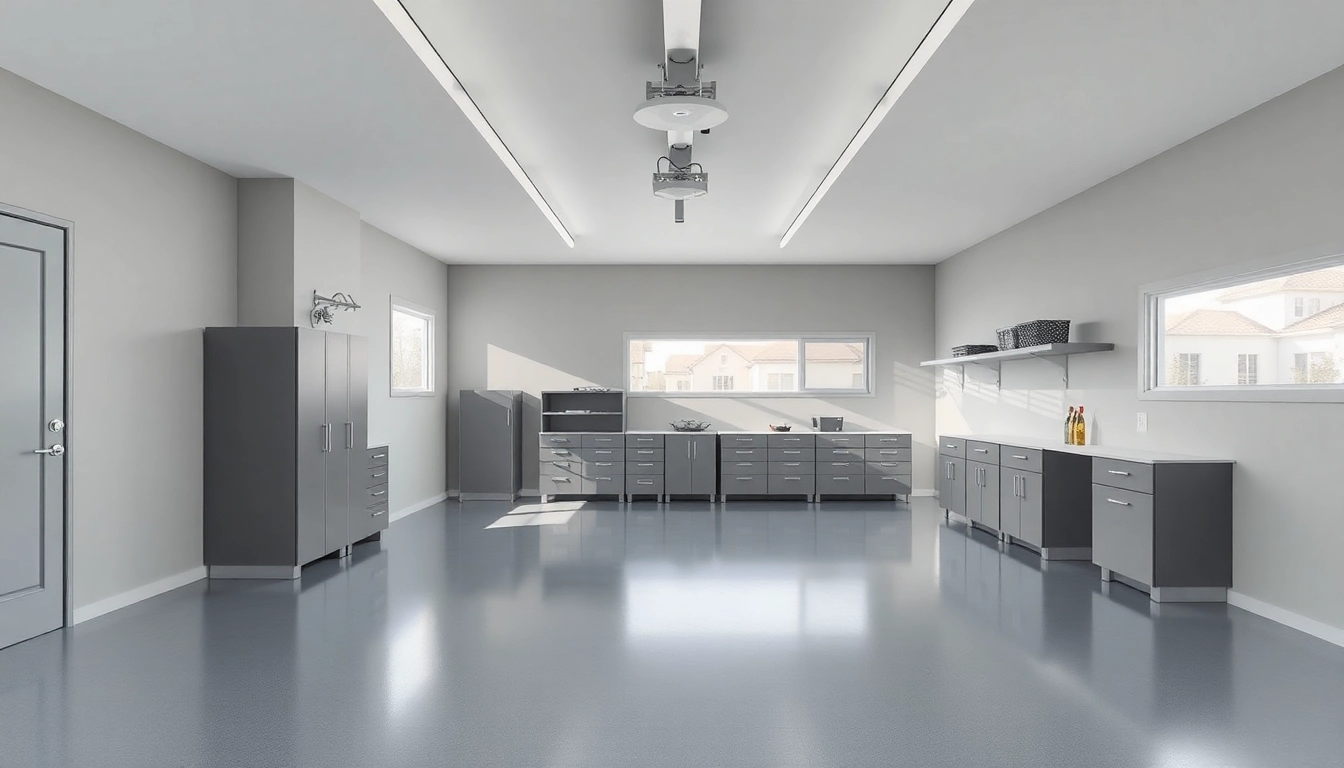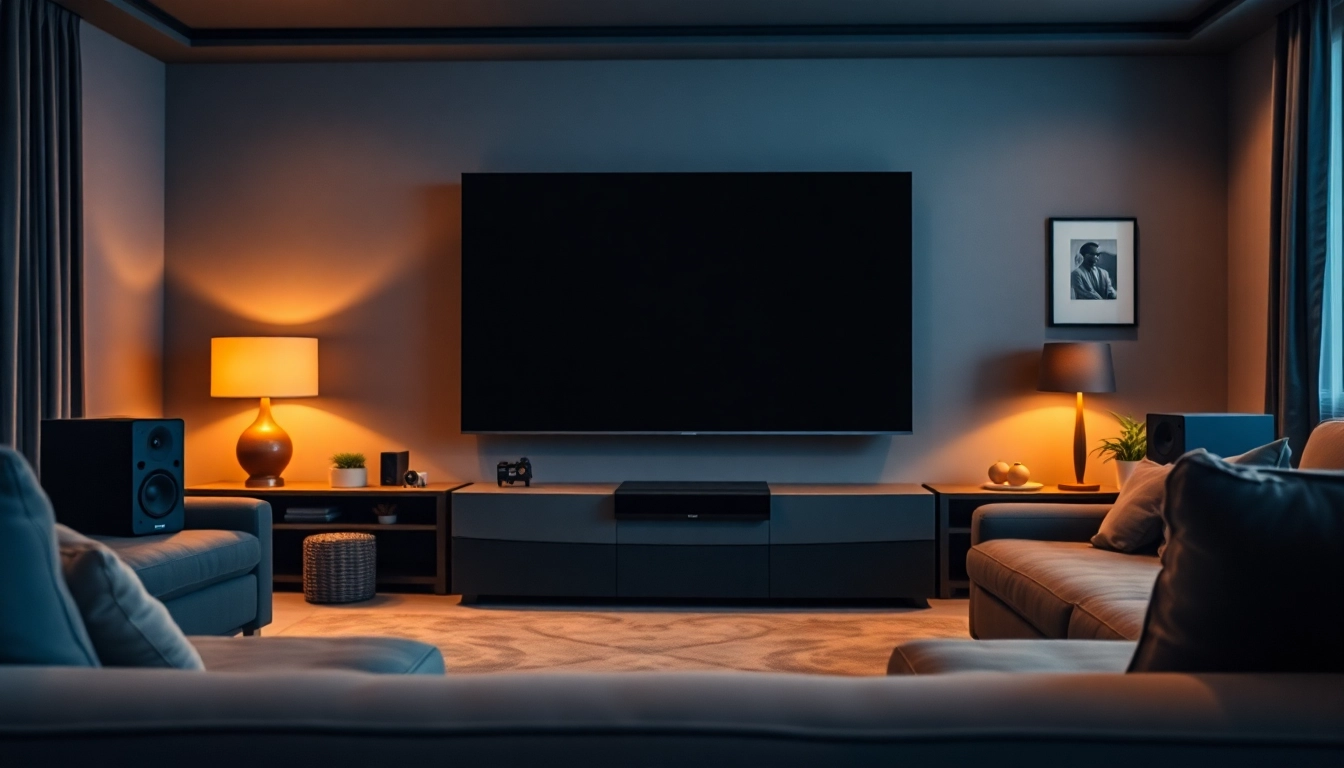Understanding Custom Garages
What are Custom Garages?
Custom garages are personalized spaces designed to accommodate a range of needs and styles, going far beyond the standard pre-fabricated models typically found in neighborhoods. They are engineered to fulfill specific purposes, whether for parking vehicles, providing storage solutions, or even serving as workshops or recreational areas. By opting for custom garages, homeowners can create a functional and aesthetically pleasing space tailored to their unique requirements.
Benefits of Custom Garages
Investing in a custom garage presents numerous advantages:
- Space Optimization: Custom garages are designed to make the most out of the available space. Whether you need extra storage, a place for your hobbies, or room for multiple vehicles, customization maximizes functionality.
- Increased Property Value: Well-designed garages can significantly enhance the overall value of a property. Prospective buyers often view a custom garage as a valuable asset, making the property more appealing in the market.
- Personalization: Homeowners can choose various designs, materials, and finishes to reflect their style. This level of personalization enables you to create a space that harmonizes with the overall aesthetics of your home.
- Durability: Custom garages are built with high-quality materials that ensure longevity. Unlike standard models, customization often implicates better construction standards that minimize repairs and replacements.
- Adaptability: As lifestyles change, the needs of homeowners evolve. Custom garages can be reconfigured or expanded based on personal preferences, making them a flexible investment over time.
Popular Styles and Designs
When creating a custom garage, several popular styles and designs cater to various tastes:
- Traditional Garages: These often incorporate classic elements such as gabled roofs and wooden siding, complementing older homes and providing a timeless appeal.
- Modern Designs: Featuring clean lines, minimalist aesthetics, and often using materials such as metal and glass, modern garages attract homeowners looking for a sleek, contemporary look.
- Detached Garages: These structures stand apart from the main house and can serve multiple functions, from vehicle storage to additional workspace.
- Multi-Car Garages: Designed for families with multiple vehicles, these garages can accommodate two or more cars, often including additional features such as extra storage spaces or workbenches.
Choosing the Right Garage Builder
Key Qualities to Look For
Choosing the right builder for your custom garage is crucial to ensure that the project meets your expectations. Here are some key qualities to consider:
- Experience: Look for builders with significant experience in constructing custom garages. Their portfolio should showcase diverse projects, indicating versatility and expertise.
- Reputation: Research online reviews and testimonials from former clients. A reputable builder will have positive feedback and a strong history of satisfied customers.
- Quality of Work: Always ask to see examples of completed garages. High-quality finishes, durable materials, and meticulous craftsmanship should be evident.
- Communication: The ability to communicate effectively is essential. Your builder should be open to discussing ideas, answering questions, and addressing concerns throughout the project.
- Licensing and Insurance: Ensure the builder is properly licensed and insured. This protects you as a homeowner in case of accidents or construction defects.
Evaluating Client Testimonials
Client testimonials can provide valuable insights into a builder’s reliability and quality of work. Consider the following when evaluating testimonials:
- Specificity: Look for detailed accounts describing the building experience, such as timelines, communication, and the final quality of the garage.
- Recent Feedback: Focus on recent testimonials, as these will better reflect the current practices of the builder.
- Consistency: Consistent positive feedback regarding particular aspects (like attention to detail or excellent service) should be noted.
Requesting Custom Garage Quotes
Obtaining quotes is crucial to understanding the financial implications of your custom garage project. Here’s how to effectively gather quotes:
- Be Specific: Provide detailed information about your desired garage size, style, and included features to receive accurate quotes.
- Compare Multiple Quotes: Gather at least three quotes from different builders. This will help you gauge the market price and choose a builder that offers the best value.
- Understand the Breakdown: Ensure the quote includes a comprehensive breakdown of costs, such as labor, materials, permits, and any additional features or customizations.
Designing Your Custom Garage
Essential Features to Consider
When designing your custom garage, it’s essential to incorporate various features that cater to your needs:
- Doors: Consider the type (roll-up, sectional, or swing) and material (wood, metal, or fiberglass) of garage doors based on aesthetics and security.
- Windows: Including windows can enhance natural light, making the garage more inviting and usable for other purposes, such as a workspace.
- Lighting: Adequate lighting is crucial in garages. Options include overhead LED lights, workbench lighting, and accent lights.
- Insulation: For garages used year-round, quality insulation helps regulate temperatures, making the space more comfortable.
- Smart Features: Integrating technology like smart garage door openers and security systems can provide added convenience and safety.
Incorporating Storage Solutions
Effective storage solutions are vital for keeping your garage organized. Here are some popular options:
- Wall-mounted Shelves: These help utilize vertical space, keeping the floor clear.
- Cabinets: Custom cabinets can be designed to fit your storage needs, helping hide clutter and organize tools efficiently.
- Overhead Storage: Using ceiling space for storage can free up more room for larger items.
Optimizing Space with Layouts
Choosing the right layout can help maximize the space in your garage. Consider the following layouts:
- Traditional Layout: Parking spaces on either side of a central aisle.
- Workshop Layout: Dedicated areas for tools and workspaces, separate from parking zones.
- Multi-use Layout: Combining vehicle storage, storage solutions, and workshop areas within the same space requires careful planning to ensure functionality.
Materials and Construction for Custom Garages
Popular Materials for Garage Construction
Understanding the materials used in your custom garage is essential for durability and aesthetics:
- Wood: Offers a classic look but requires regular maintenance.
- Metal: Provides excellent durability and minimal maintenance. Steel or aluminum are common choices.
- Vinyl: Low-maintenance and resistant to warping and fading.
Understanding the Construction Process
Familiarizing yourself with the construction process can help in setting realistic expectations:
- Planning and Design: Initial stages involve planning the layout, choosing materials, and finalizing designs.
- Permits and Approvals: Ensure you work with your builder to obtain necessary permits before construction begins.
- Construction: This phase includes site preparation, foundation work, and the installation of structural components.
- Finishing Touches: This includes adding features like doors, windows, and any interior finishes.
Ensuring Durability and Aesthetic Appeal
The goals of any custom garage construction project are durability and aesthetic appeal:
- Quality Materials: Always opt for high-quality materials that are designed to withstand the elements.
- Professional Craftsmanship: Hiring skilled builders ensures that all features are installed correctly and that the structure is built to last.
- Aesthetic Considerations: The exterior design should complement your home, potentially including siding, roofing options, and paint that matches your property.
Maintaining Your Custom Garage
Seasonal Maintenance Tips
Regular maintenance is essential to keep your custom garage in excellent condition. Here are some seasonal tips:
- Spring: Inspect for damages from winter weather and clean out any clutter that has accumulated.
- Summer: Ensure adequate ventilation to reduce humidity, and check for pests.
- Fall: Prepare for colder weather by checking insulation and ensuring that doors and seals are functioning properly.
- Winter: Regularly clear the driveway and entrance to the garage to prevent ice buildup.
Upgrading Your Garage Features
As your needs change, you may want to consider upgrading various features of your garage:
- Enhanced Storage Solutions: Adding new cabinets or shelving can help meet evolving storage needs.
- Advanced Technology: Incorporate smart home technology like automated doors or surveillance equipment for increased security.
- Improved Lighting: Upgrading to energy-efficient LED lighting can improve visibility and reduce energy costs.
Keeping Your Garage Organized
Maintaining organization within your garage can enhance its functionality:
- Regular Decluttering: Schedule time to sort through items every few months to remove anything unnecessary.
- Using Labels: Clearly label storage bins and areas to make finding items easier.
- Creating Zones: Designate specific areas for tools, storage, and parking to create a more systematic environment.



